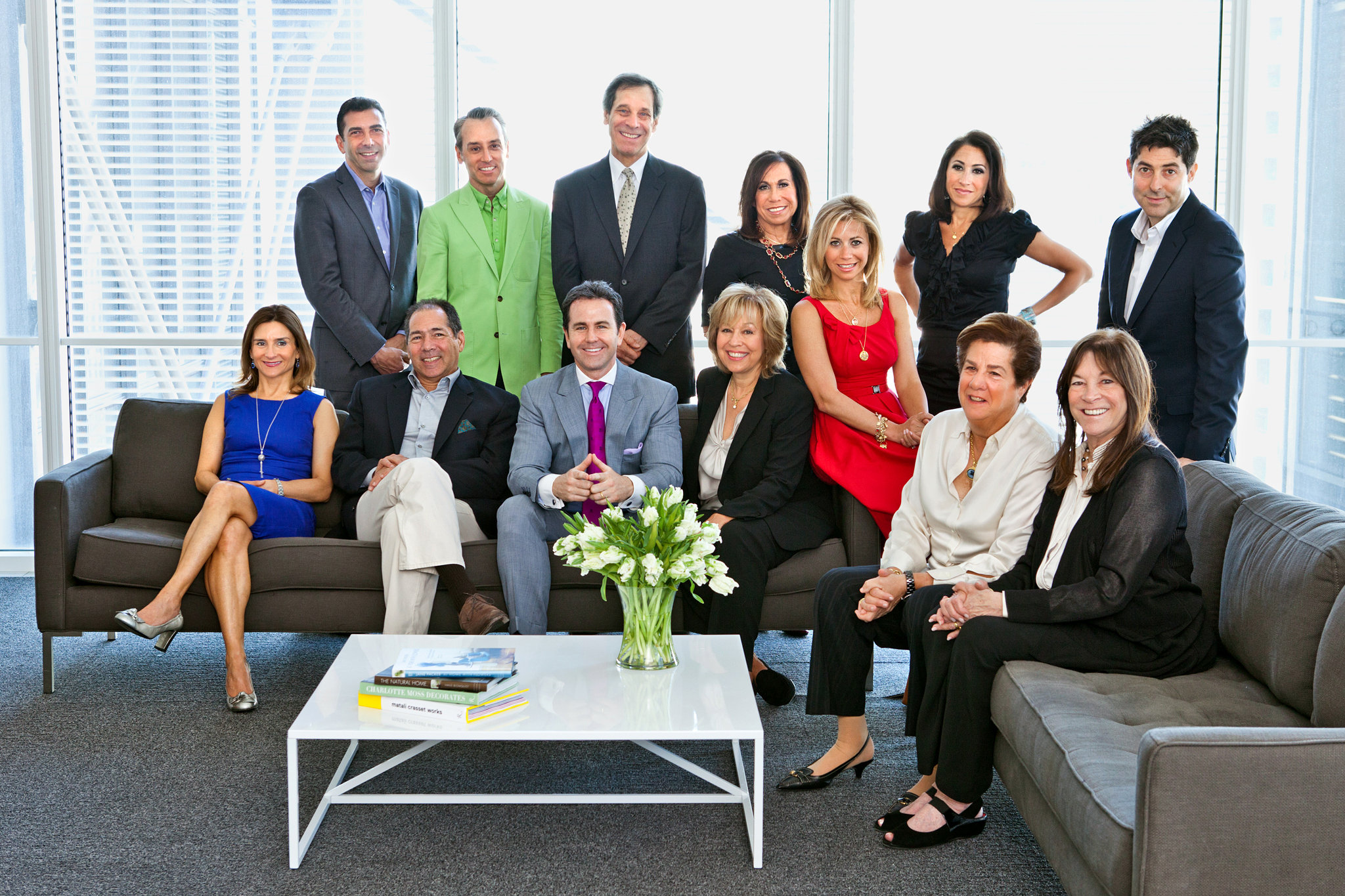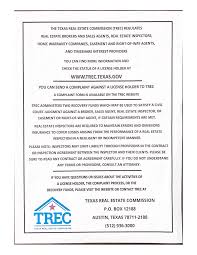
A buyer's broker agreement is a legal document that protects the interests of both buyers and agents during a real estate transaction. The agreement should be signed before the agent can begin representing the buyer during a home buy or sell. It should clearly delineate what duties the broker will perform for the buyer, how the agent will be compensated and other important details.
What is a buyer's agent agreement?
A buyers broker agreement is a contract that outlines the duties and responsibilities of a real estate agent. The agreement also covers compensation for a broker representing the buyer in a home sale or purchase.
What are the types and terms of buyer's broker agreement?
Pre-negotiated compensation, exclusive right-to represent and nonexclusive right to represent are the most popular types of buyer's brokers agreements. Each type offers its own advantages and drawbacks.
Exclusive Rights to Repeal: An agreement that obligates the buyer to only work with a single agent. They cannot hire another agent within the agreed time frame. This type of agreement is usually made for one to 12 months, but can be longer if the buyer decides not to buy a property.

This type of buyer's broker agreement also specifies the amount of commission that the agent will charge the buyer upon purchase of a home. A percentage of the sale price is used to calculate the commission.
What is the difference of a buyer's broker and listing agreement?
A buyer's broker agreement describes the duties and responsibilities for an agent, as well the rights and obligations of a buyer. It is binding legal agreement between the buyer (or agent) and is required to be written.
Why should I agree to a buyer's brokerage agreement?
Some buyers may find it intimidating to sign a buyer's agreement with a broker, but it is a crucial step in the realty process. It protects both the buyer and the agent's best interests.
What does the broker's contract cover?
The buyer's brokerage agreement should cover every step of the transaction, including inspections as well as closing. It should also cover the seller's responsibilities, which can be different than those of the buyer.
Do you have to sign a contract in order to buy a home?
The buyer's price range and type of property should be stated in the contract. Agents won't waste time trying to find a buyer who might not be serious.

What happens when I want to break my buyer's broker agreement?
It is essential to inform your buyer quickly if you have decided to breach their broker agreement. This will allow the brokerage to avoid possible lawsuits.
First, communicate with your broker. It is a good idea that you write down the details of your agreement, and then explain to your broker your plans. Your broker will find it easier to understand why and what you want.
FAQ
Can I buy a house without having a down payment?
Yes! There are programs available that allow people who don't have large amounts of cash to purchase a home. These programs include conventional mortgages, VA loans, USDA loans and government-backed loans (FHA), VA loan, USDA loans, as well as conventional loans. Check out our website for additional information.
What is the cost of replacing windows?
Window replacement costs range from $1,500 to $3,000 per window. The cost of replacing all your windows will vary depending upon the size, style and manufacturer of windows.
How can you tell if your house is worth selling?
If you have an asking price that's too low, it could be because your home isn't priced correctly. If your asking price is significantly below the market value, there might not be enough interest. To learn more about current market conditions, you can download our free Home Value Report.
Is it cheaper to rent than to buy?
Renting is generally less expensive than buying a home. But, it's important to understand that you'll have to pay for additional expenses like utilities, repairs, and maintenance. You also have the advantage of owning a home. For instance, you will have more control over your living situation.
What are the three most important things to consider when purchasing a house
The three main factors in any home purchase are location, price, size. Location is the location you choose to live. Price is the price you're willing pay for the property. Size is the amount of space you require.
How do I fix my roof
Roofs can leak because of wear and tear, poor maintenance, or weather problems. Repairs and replacements of minor nature can be made by roofing contractors. Contact us for more information.
Statistics
- When it came to buying a home in 2015, experts predicted that mortgage rates would surpass five percent, yet interest rates remained below four percent. (fortunebuilders.com)
- Over the past year, mortgage rates have hovered between 3.9 and 4.5 percent—a less significant increase. (fortunebuilders.com)
- The FHA sets its desirable debt-to-income ratio at 43%. (fortunebuilders.com)
- Some experts hypothesize that rates will hit five percent by the second half of 2018, but there has been no official confirmation one way or the other. (fortunebuilders.com)
- It's possible to get approved for an FHA loan with a credit score as low as 580 and a down payment of 3.5% or a credit score as low as 500 and a 10% down payment.5 Specialty mortgage loans are loans that don't fit into the conventional or FHA loan categories. (investopedia.com)
External Links
How To
How to Manage a Rent Property
It can be a great way for you to make extra income, but there are many things to consider before you rent your house. This article will help you decide whether you want to rent your house and provide tips for managing a rental property.
Here are some things you should know if you're thinking of renting your house.
-
What should I consider first? You need to assess your finances before renting out your home. If you have outstanding debts like credit card bills or mortgage payment, you may find it difficult to pay someone else to stay in your home while that you're gone. Check your budget. If your monthly expenses are not covered by your rent, utilities and insurance, it is a sign that you need to reevaluate your finances. ), it might not be worth it.
-
What is the cost of renting my house? Many factors go into calculating the amount you could charge for letting your home. These factors include location, size, condition, features, season, and so forth. It's important to remember that prices vary depending on where you live, so don't expect to get the same rate everywhere. Rightmove estimates that the market average for renting a 1-bedroom flat in London costs around PS1,400 per monthly. This means that if you rent out your entire home, you'd earn around PS2,800 a year. It's not bad but if your property is only let out part-time, it could be significantly lower.
-
Is it worth the risk? You should always take risks when doing something new. But, if it increases your income, why not try it? Make sure that you fully understand the terms of any contract before you sign it. Your home will be your own private sanctuary. However, renting your home means you won't have to spend as much time with your family. Make sure you've thought through these issues carefully before signing up!
-
Are there any advantages? You now know the costs of renting out your house and feel confident in its value. Now, think about the benefits. There are many reasons to rent your home. You can use it to pay off debt, buy a holiday, save for a rainy-day, or simply to have a break. It is more relaxing than working every hour of the day. If you plan well, renting could become a full-time occupation.
-
How do I find tenants Once you've decided that you want to rent out, you'll need to advertise your property properly. Listing your property online through websites like Rightmove or Zoopla is a good place to start. Once potential tenants reach out to you, schedule an interview. This will help you assess their suitability and ensure they're financially stable enough to move into your home.
-
How can I make sure I'm covered? If you're worried about leaving your home empty, you'll need to ensure you're fully protected against damage, theft, or fire. You'll need to insure your home, which you can do either through your landlord or directly with an insurer. Your landlord will often require you to add them to your policy as an additional insured. This means that they'll pay for damages to your property while you're not there. If you are not registered with UK insurers or if your landlord lives abroad, however, this does not apply. In such cases you will need a registration with an international insurance.
-
If you work outside of your home, it might seem like you don't have enough money to spend hours looking for tenants. It's important to advertise your property with the best possible attitude. A professional-looking website is essential. You can also post ads online in local newspapers or magazines. You'll also need to prepare a thorough application form and provide references. Some prefer to do it all themselves. Others hire agents to help with the paperwork. In either case, be prepared to answer any questions that may arise during interviews.
-
What happens once I find my tenant If there is a lease, you will need to inform the tenant about any changes such as moving dates. You can negotiate details such as the deposit and length of stay. Remember that even though you will be paid at the end of your tenancy, you still have to pay utilities.
-
How do I collect the rent? When it comes time for you to collect your rent, check to see if the tenant has paid. If not, you'll need to remind them of their obligations. After sending them a final statement, you can deduct any outstanding rent payments. You can call the police if you are having trouble getting hold of your tenant. If there is a breach of contract they won't usually evict the tenant, but they can issue an arrest warrant.
-
How can I avoid potential problems? Renting out your house can make you a lot of money, but it's also important to stay safe. Make sure you have carbon monoxide detectors installed and security cameras installed. Make sure your neighbors have given you permission to leave your property unlocked overnight and that you have enough insurance. You should never allow strangers into your home, no matter how they claim to be moving in.